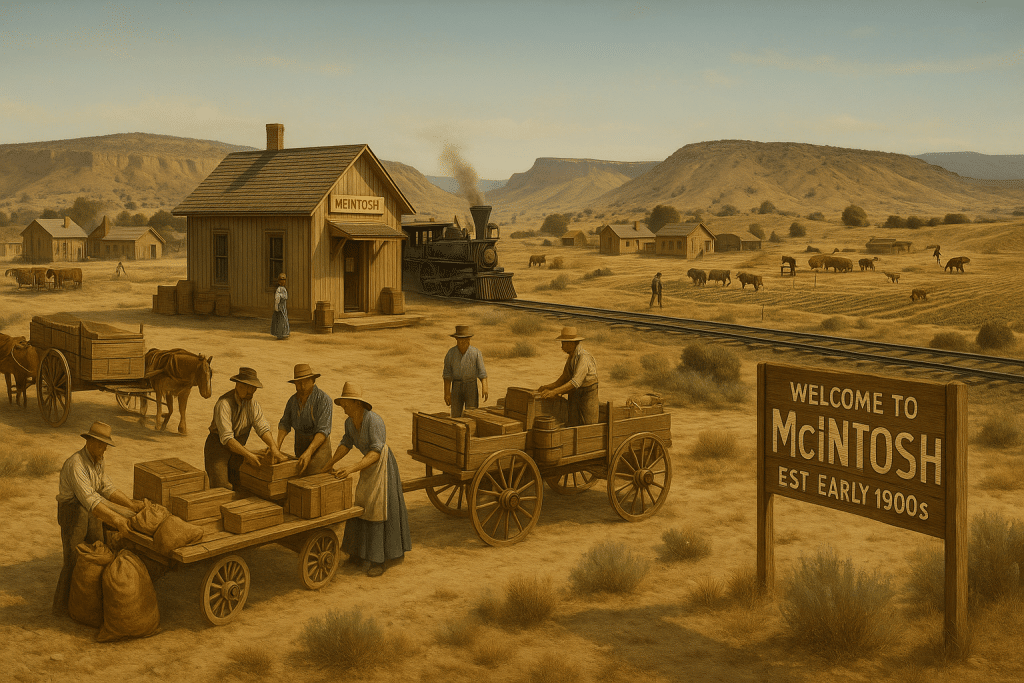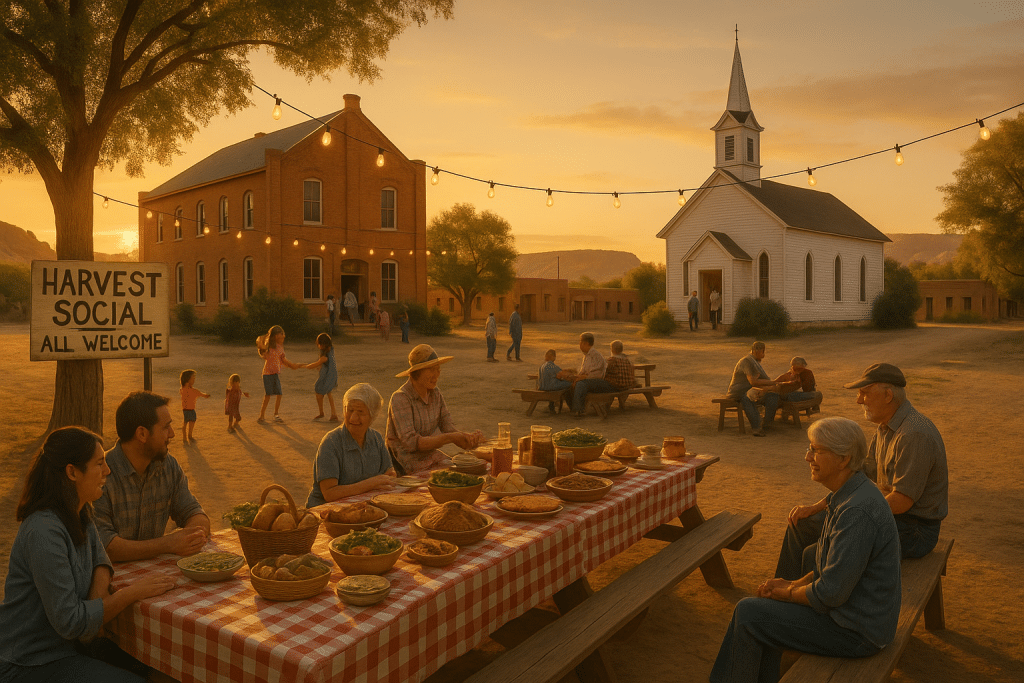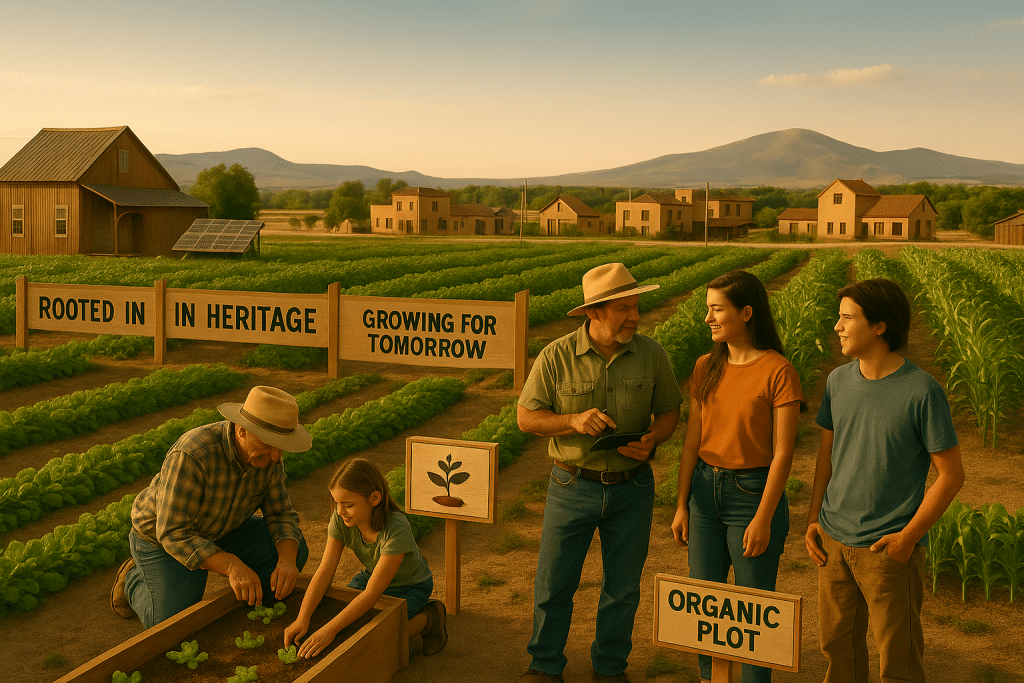The Role of McIntosh in New Mexico’s Rural Heritage and Community Growth
When you think of small towns nestled in the vast landscapes of New Mexico, it’s easy to overlook places like McIntosh. However, this quiet town plays a vital role in preserving the state’s rural traditions and identity.
Located in Torrance County, McIntosh is a community steeped in agricultural heritage, shaped by generations of farmers and ranchers who’ve worked tirelessly to cultivate the land.
In this blog, we’ll explore how McIntosh came to be, its importance in New Mexico’s agricultural history, and its community’s efforts to adapt and thrive amidst challenges. Whether you’re a cultural historian or a curious researcher, this deep-dive into McIntosh’s story sheds light on the unique role of small towns in the larger fabric of New Mexico’s identity.
The Founding of McIntosh and Its Early Days
How McIntosh Was Established
McIntosh was officially established in the early 20th century, driven by opportunities that attracted settlers to the area. Its fertile lands and proximity to the railroad made it an appealing destination for those seeking better prospects through agriculture and farming.
The arrival of railroad infrastructure connected the region to larger markets, enabling settlers to trade their crops and livestock, and ensuring the survival of this burgeoning community.
Early settlers were drawn by the promise of open land and New Mexico’s semi-arid beauty. Despite challenges posed by the harsh terrain, these pioneers saw the potential to cultivate a life centered on hard work and community.
Early Economic and Agricultural Development
From the beginning, McIntosh’s economy revolved around farming and ranching. Settlers introduced crops such as beans, corn, and alfalfa, which thrived in the state’s sunny climate. Livestock ranching also played a central role, with cattle and sheep driving much of the local economy.
Residents relied on innovative but basic farming techniques, often learning through trial and error. These early efforts laid the foundation for McIntosh’s agricultural identity while fostering a spirit of self-reliance among its settlers.
McIntosh’s Role in New Mexico’s Rural Agriculture
Farming and Ranching in McIntosh
McIntosh quickly became a hub for agricultural activity in New Mexico. The region’s sunny days and cool nights were ideal for cultivating crops like chile, beans, and corn, which became staples of the community’s farming industry. Its ranching traditions were equally important, with cattle and sheep forming the backbone of local livelihoods.
The community supported each other by exchanging farming techniques and pooling resources during tough seasons. This collaborative approach strengthened McIntosh’s agricultural reputation while keeping its traditions alive.
Water and Irrigation: The Lifeline of Rural Growth
Farming in a semi-arid region brought unique challenges, with water scarcity being the most significant. Early irrigation systems relied on rudimentary canals to divert water from streams to fields, but droughts often posed significant threats.
Over time, McIntosh adopted more advanced irrigation methods, such as pump systems and groundwater extraction. These innovations ensured that crops could survive even during challenging seasons and helped the region maintain its role as an agricultural contributor to New Mexico.
How McIntosh Helped Shape New Mexico’s Agricultural Landscape
McIntosh’s contributions extended beyond its borders, influencing New Mexico’s broader agricultural practices. Its success with crops like beans and chile set examples for other rural communities. Furthermore, farmers from McIntosh participated in larger agricultural fairs and networks, sharing knowledge and best practices statewide.
Community Life in McIntosh Through the Years
The Importance of Small-Town Community Ties
Community has always been central to life in McIntosh. From helping neighbors during harvest season to gathering for social events, the residents of McIntosh created strong bonds that have persisted over generations.
Events such as seasonal fairs and potluck dinners brought everyone together, creating a shared sense of purpose and belonging. This mutual support system ensured that McIntosh could withstand hardships and celebrate successes as one.
Schools, Churches, and Social Hubs
Education and faith played significant roles in shaping McIntosh’s identity. The town’s schools became places where future generations learned the importance of community and hard work. Local churches, meanwhile, were not only spiritual centers but also hubs for social gatherings, weddings, and celebrations.
Some of these historic buildings remain standing today, serving as reminders of McIntosh’s enduring spirit and close-knit connections.
Economic Shifts and Modern-Day McIntosh
The Decline of Traditional Farming and Ranching
With industrialization and changing economic trends, farming and ranching in small towns like McIntosh began to decline. Larger corporate farms and shifting market demands made it harder for family-run farms to compete.
Additionally, technological advancements brought more efficient farming techniques that required fewer workers, contributing to reduced activity in local agriculture.
How McIntosh Has Maintained Its Rural Identity
Despite these challenges, McIntosh remains steadfast in preserving its rural heritage. Initiatives such as farmers’ markets and community-supported agriculture (CSA) programs have revitalized interest in local produce and traditions. Heritage festivals and celebrations of agricultural history also play a central role in keeping McIntosh’s identity alive.
These efforts show how the town has adapted to modern realities while staying true to its roots.
The Future of Rural Heritage in McIntosh
Preserving Agricultural Traditions
Looking ahead, preserving McIntosh’s agricultural heritage will require continued innovation and community involvement. Sustainability practices, such as water management and organic farming, are key to keeping small-scale agriculture viable in the region.
Institutions and local groups are actively working to promote farming among younger generations, ensuring that these traditions are carried forward for years to come.
Encouraging Community Growth Without Losing Identity
Balancing modernization with preserving cultural identity remains a priority for McIntosh. New businesses and residents are welcome additions, but they’re encouraged to respect and participate in the town’s long-standing traditions.
With careful planning and shared dedication, future generations can enjoy the benefits of growth while celebrating McIntosh’s unique heritage.
Why McIntosh’s Rural Heritage Still Matters
McIntosh’s history is more than just a record of a small town’s agricultural past; it’s a testament to resilience, hard work, and the enduring power of community. Its story represents the broader history of rural New Mexico and the value of preserving traditions in a rapidly changing world.
By appreciating towns like McIntosh, we honor the contributions of the farmers, ranchers, and families who laid the groundwork for future generations. Supporting heritage efforts ensures these stories and traditions continue to inspire and enrich our understanding of what it means to be part of a close-knit, rural community.




